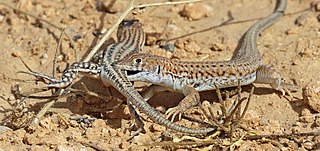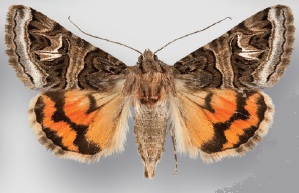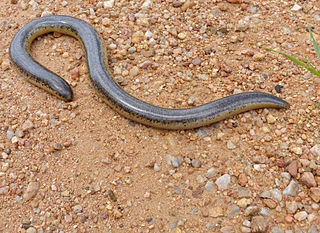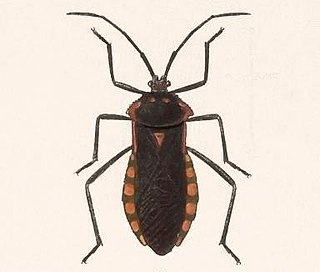
Order Desmothoracida, the desmothoracids, are a group of heliozoan protists, usually sessile and found in freshwater environments. The adult is a spherical cell around 10-20 μm in diameter surrounded by a perforated organic lorica, or shell, with many radial pseudopods projecting through the holes to capture food. These are supported by small bundles of microtubules that arise near a point on the nuclear membrane. Unlike other heliozoans, the microtubules are not in any regular geometric array, there does not appear to be a microtubule organizing center, and there is no distinction between the outer and inner cytoplasm.

Acanthodactylus is a genus of lacertid lizards, commonly referred to as fringe-fingered lizards, fringe-toed lizards, and spiny-toed lizards.

Coral snakes are a large group of elapid snakes that can be divided into two distinct groups, the Old World coral snakes and New World coral snakes. There are 27 species of Old World coral snakes, in three genera, and 83 recognized species of New World coral snakes, in two genera. Genetic studies have found that the most basal lineages have origins in Asia, suggesting that the group originated in the Old World. While new world species of both genera are venomous, their bites are seldom lethal; only two confirmed fatalities have been documented in the past 100 years from the genus Micrurus. Meanwhile, snakes of the genus Micruroides have never caused a medically significant bite.

Dactylioceras was a widespread genus of ammonites from the Lower Jurassic period, approximately 180 million years ago (mya).

Eleutherodactylus is a genus of frogs in the family Eleutherodactylidae. Many of the 200 species of the genus are commonly known as "rain frogs" or "robber frogs", due to their sharp, high-pitched, insect-like calls.

Trimusculus is a genus of medium-sized air-breathing sea snails or false limpets, marine pulmonate gastropod molluscs in the family Trimusculidae.

Pyrops is a genus of planthoppers that occur primarily in southeast Asia, containing about 70 species. They are fairly large insects, with much of the length due to an elongated, upcurving, snout-like projection of the head. The wings are generally brightly patterned in contrasting colors, and they are popular among collectors.

Drasteria is a genus of moths in the family Erebidae.

Siciliaria is a genus of small, air-breathing land snails, terrestrial pulmonate gastropod molluscs in the family Clausiliidae, all of which have a clausilium.
Centrorhynchidae is a family of parasitic worms. Three species of these thorny-headed worms in the genus Centrorhynchus were found to parasitize birds of prey and owls Slovakia. These hosts include Buteo buteo, Buteo rufinus, Falco tinnunculus, Asio otus, Strix aluco, Strix uralensis and Tyto alba.

Cercopidae are the largest family of Cercopoidea, a xylem-feeding insect group, commonly called froghoppers or spittlebugs. They belong to the hemipteran suborder Auchenorrhyncha. A 2023 phylogenetic study of the family suggested the elevation of subfamily Ischnorhininae to full family status as Ischnorhinidae, leaving a monophyletic Cercopinae.

Polystira is a genus of sea snails, marine gastropod mollusks in the family Turridae, the turrids.

Proporidae is a family of acoels.

Afrotyphlops is a genus of snakes in the family Typhlopidae.

Sephina is a genus of leaf-footed bugs in the family Coreidae. There are more than 20 described species in Sephina.

Mesostoma is a genus of Typhloplanidae.

Ammoecius is a genus of scarab beetles in the family Scarabaeidae. There are at least 20 described species in Ammoecius, found in Europe, Asia, and Africa.

Typhloplanidae is a family of flatworms in the order Rhabdocoela.
Euxina is a genus of gastropods belonging to the family Clausiliidae.
















